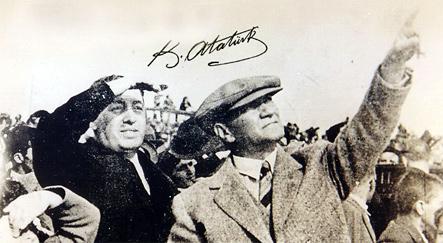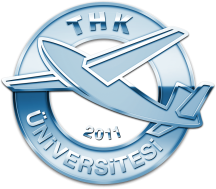ANKARA AERONAUTICAL VOCATIONAL SCHOOL CIVIL AVIATION CABIN SERVICES PROGRAM HAS BEEN AUTHORIZED AS A "CABIN CREW INITIAL TRAINING ORGANISATION" BY DGCA AS OF APRIL 2018.
General Information
The aviation industry, which is considered to be fast and reliable, continues to develop at an extraordinary pace today, where borders have disappeared with globalization and the concept of time has become more important. These developments and regulations encourage more and more airline companies to join the civil aviation sector. Parallel to this, domestic and international flight destinations in air passenger transportation are increasing rapidly. While the aviation industry is developing rapidly, the need for qualified personnel is also increasing. There is a need for Cabin Attendants who are knowledgeable in matters such as International Civil Aviation Organizations and Rules, Cabin Attendant Duties and Responsibilities, Passenger Relations, Emergency and Normal Safety Rules, First Aid with high communication skills and well-spoken English. It is clear that this need will also exist in the near future.
Aim
The aim of the Civil Aviation Cabin Services Program is to train flight attendants with the necessary knowledge and capabilities to be employed at airline companies. The content of the training program, authorized by the Directorate General of Civil Aviation (DGCA), is qualified to enable students to acquire professional knowledge, skills and qualities at national and international standards. Since the common language used in the aviation industry all over the world is English, it is aimed for the students to acquire English grammar and speaking skills at a level that will allow them to work both in national and international areas.
Civil Aviation Cabin Services Program offers two years of Turkish education after high school education. Students are placed with the TYT (Basic Proficiency Test) score type they get as a result of the YKS (Higher Education Institutions Exam) conducted by the ÖSYM.
Approximately 75 students are admitted to the program each year. Students are required to take all core courses with mandatory certificate requirements and meet the standard of achievement. At the same time, students are required to provide at least 2.00 average in order to graduate.
Frequently Asked Questions About Civil Aviation Cabin Services Program
How many students will be admitted to the Civil Aviation Cabin Services Program in the 2023-2024 academic year?
There are 71 student quotas in the formal education of the Civil Aviation Cabin Services Program. 60 students will be placed on a paid basis and 11 students will be placed on a 100% (full) scholarship.
What is the tuition fee of the Civil Aviation Cabin Services Program?
The annual training fee of the Civil Aviation Cabin Services Program is 110,000 TL and 55,000 TL will be deposited each semester.
How is placement made in the Civil Aviation Cabin Services Program?
Students are recruited according to TYT score type.
Where will the students enrolled in the Civil Aviation Cabin Services Program study?
They will study at the Türkkuşu Campus of the University of Turkish Aeronautical Association in Etimesgut.
How long is the training period of the Civil Aviation Cabin Services Program?
The training period of the Civil Aviation Cabin Services Program is 2 years.
Is there a compulsory internship application in the Civil Aviation Cabin Services Program?
There is no compulsory internship in this program.
Is there a continuation obligation in the Civil Aviation Cabin Services Program?
Attendance is mandatory, students have to attend 70% of the theoretical courses and 80% of the practical courses, otherwise they will be deemed unsuccessful in the relevant course.
What is the academic average required to graduate from the Civil Aviation Cabin Services Program?
In order to graduate from the Civil Aviation Cabin Services Program, the general academic average must be at least 2.0/4.0.
Is there a special talent exam for entry to the Civil Aviation Cabin Services Program?
There is no special aptitude test for entry to the Civil Aviation Cabin Services Program.
What are the special requirements to be able to study in the Civil Aviation Cabin Services Program?
*Not having a Criminal Record or a Criminal Record Archive Record.
*For women, to be between 160-180 cm tall (weight at most 5 kg more or 15 kg less than the last two digits of the value of height expressed in centimeters).
*For men, to be between 170-190 cm tall (with a maximum weight of 5 kg more or 15 kg less than the last two digits of the height expressed in centimeters).
*Able to swim.
*Health to be fit for flight (They are required to receive a health report from the health institutions authorized by the Directorate General of Civil Aviation).
https://web.shgm.gov.tr/doc4/sht-sag.pdf
*When the Cabin Attendant uniform is worn, tattoos, scars, etc. on the visible parts of the body (as shown below) are not accepted.

What procedure is applied if the student cannot meet the minimum requirements in the Civil Aviation Cabin Services Program during the education period ?
It is out of question for the student not to be able to graduate in cases such as not meeting the minimum physical requirements (such as height-weight ratio).
Is there any prep class in the Civil Aviation Cabin Services Program? If yes, is it mandatory?
There is no prep class in the Civil Aviation Cabin Services Program and there is no optional prep class. In the curriculum, 10-14 hours of English education is given per week. The language of the program is Turkish .
CIVIL AVIATION CABIN SERVICES PROGRAM INITIAL AND REQUIRED COURSES TO PROVIDE A SUCCESS STANDARD
- Aviation Terminology
- Basic Meteorology
- Civil Aviation Legislations
- General Aircraft Information
- Normal Safety Rules
- Emergency Safety Rules
- Crew Resource Management (CRM)
- Dangerous Goods Rules (DGR)
- Cockpit and Cabin Personnel Safety Training

